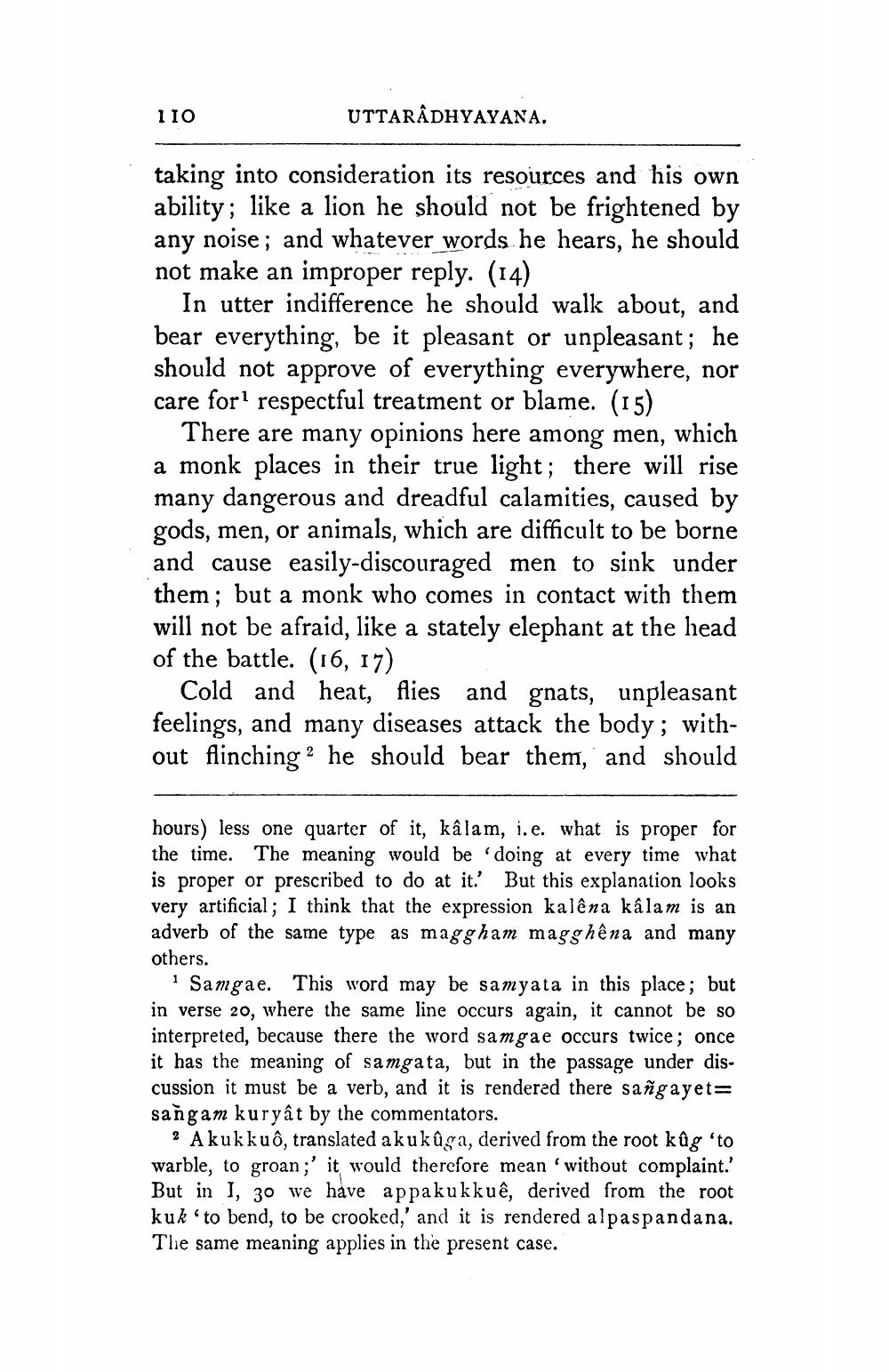________________
UTTARADHYAYANA.
taking into consideration its resources and his own ability; like a lion he should not be frightened by any noise; and whatever words he hears, he should not make an improper reply. (14)
In utter indifference he should walk about, and bear everything, be it pleasant or unpleasant; he should not approve of everything everywhere, nor care for1 respectful treatment or blame. (15)
There are many opinions here among men, which a monk places in their true light; there will rise many dangerous and dreadful calamities, caused by gods, men, or animals, which are difficult to be borne and cause easily-discouraged men to sink under them; but a monk who comes in contact with them will not be afraid, like a stately elephant at the head of the battle. (16, 17)
Cold and heat, flies and gnats, unpleasant feelings, and many diseases attack the body; without flinching he should bear them, and should
2
110
hours) less one quarter of it, kâlam, i. e. what is proper for the time. The meaning would be doing at every time what is proper or prescribed to do at it.' But this explanation looks very artificial; I think that the expression kalêna kâlam is an adverb of the same type as maggham magghêna and many
others.
1 Samgae. This word may be samyata in this place; but in verse 20, where the same line occurs again, it cannot be so interpreted, because there the word samgae occurs twice; once it has the meaning of samgata, but in the passage under discussion it must be a verb, and it is rendered there sangayet= sangam kuryât by the commentators.
2 Akukkuô, translated akukûga, derived from the root kûg 'to warble, to groan;' it would therefore mean 'without complaint.' But in I, 30 we have appakukkuê, derived from the root kuk 'to bend, to be crooked,' and it is rendered alpaspandana. The same meaning applies in the present case.




